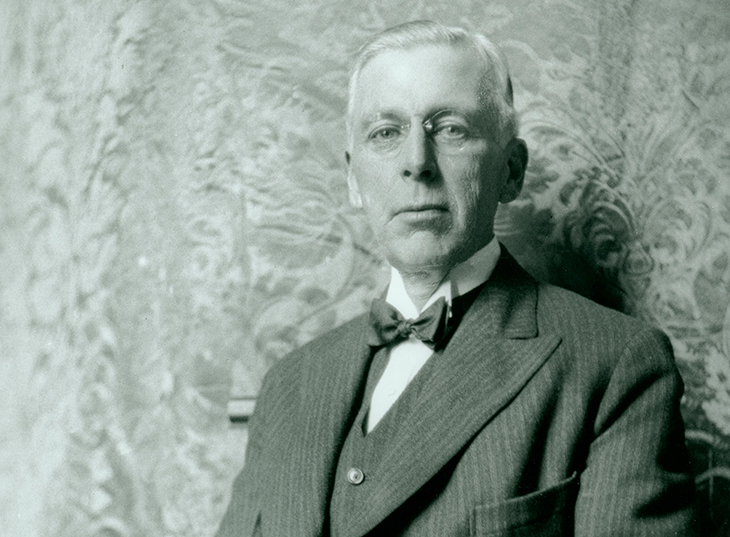It was the spring of 1930. After months of research and meetings with faculty, Principal Lewis Perry traveled to New York to meet with Edward S. Harkness, his close friend and one of the country’s leading philanthropists. With him, Perry brought an outline of how Exeter planned to use a substantial gift Harkness had proposed to make to Phillips Exeter.
Documents preserved in the Academy Archives make one thing dramatically clear: Harkness was not pleased by Perry’s proposal. “You are thinking of improving an existing institution by building on what you have got now. I am thinking of something much more radical than that,” Harkness told him. Funding small improvements—an expanded advising system, a guest speaker series—did not interest Harkness. He wanted to see a proposal containing ideas “of a fundamental nature that were so sweeping and so different from methods prevailing here that one could see at a glance that were they adopted, the whole educational system in our secondary schools would not only be changed, but changed enormously for the better.”
Principal Lewis Perry.
Harkness sent Perry and his committee back to the drawing board. Six months later they returned with a plan that Harkness agreed to fund. The gift Harkness made to Exeter—the munificent sum of $5.8 million, the equivalent of $69 million in today’s dollars—seemed to fall from the sky at a time of great need at the Academy. Harkness was not a graduate of Exeter and had no formal ties to the school. His unprecedented generosity revolutionized teaching at Exeter and continues to define an Exeter education in every way 75 years later. This much is commonly known to those associated with the Academy.





